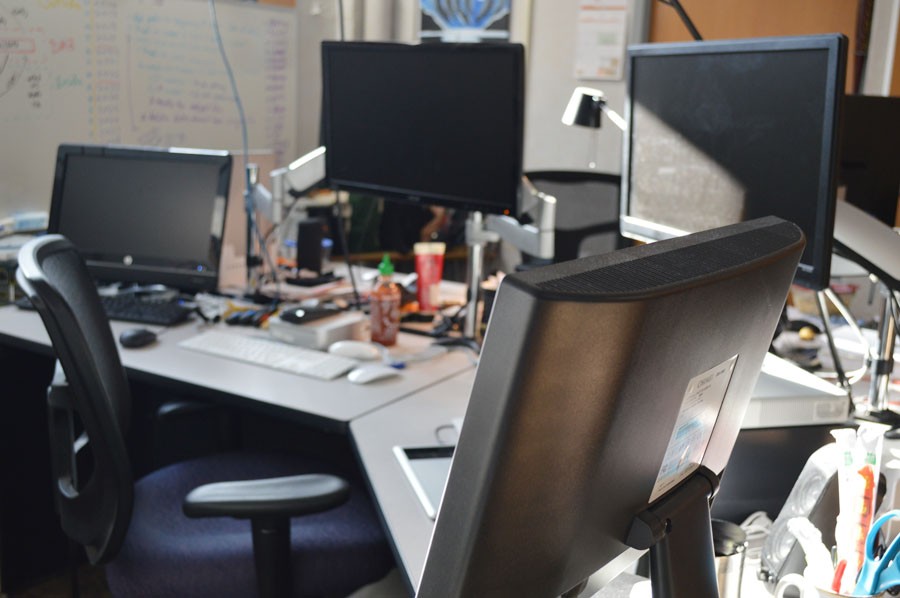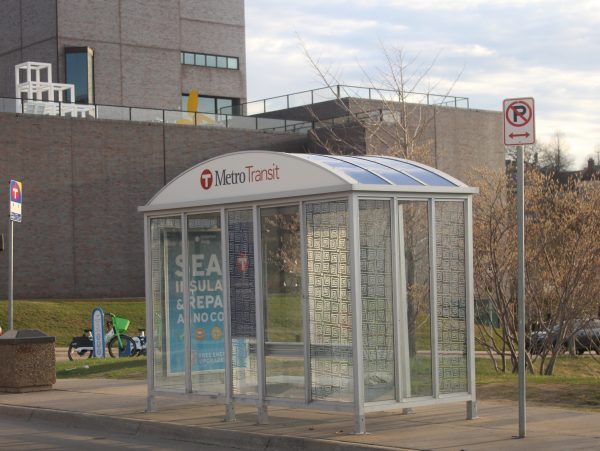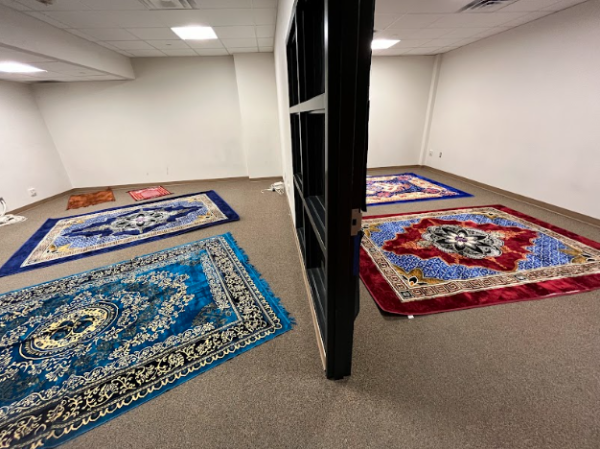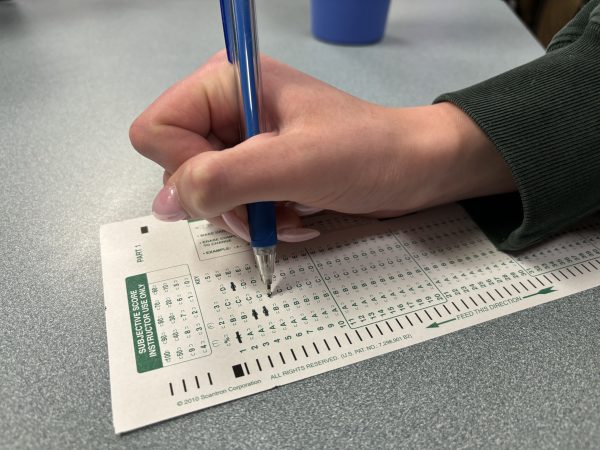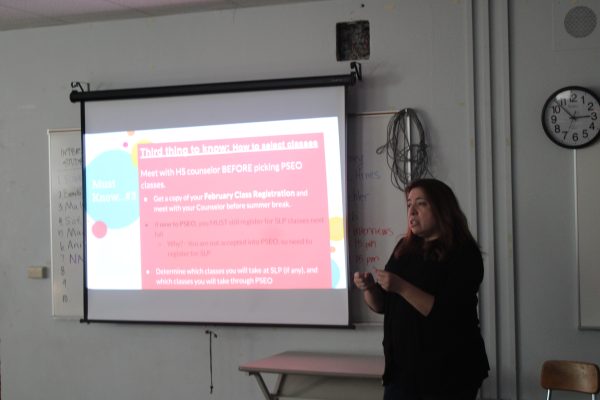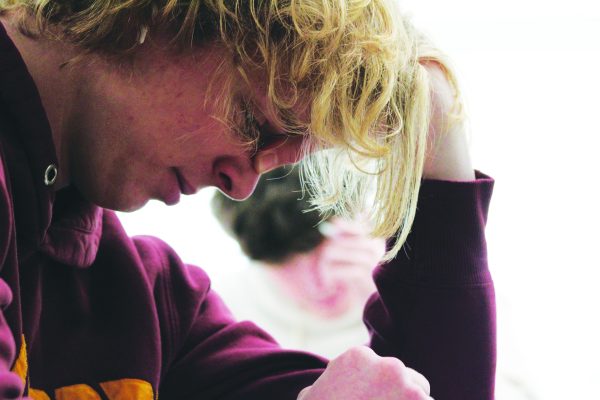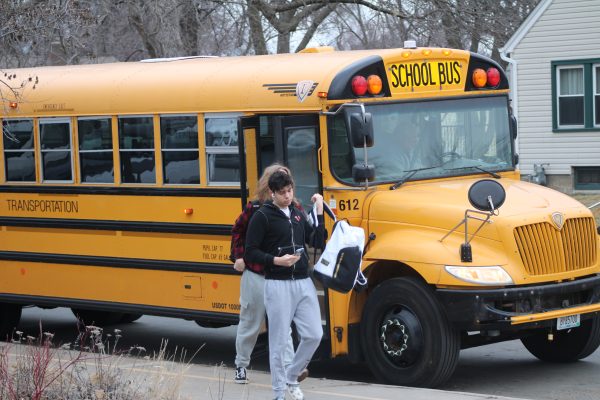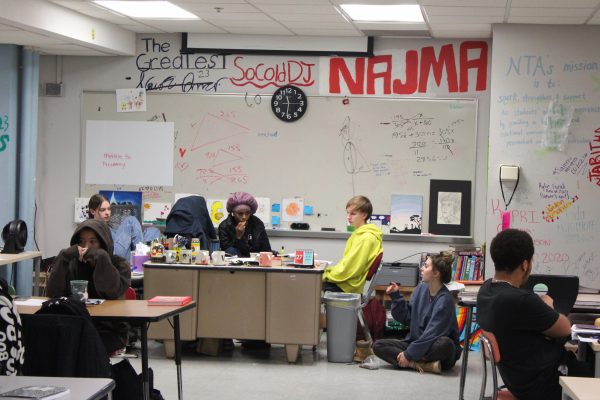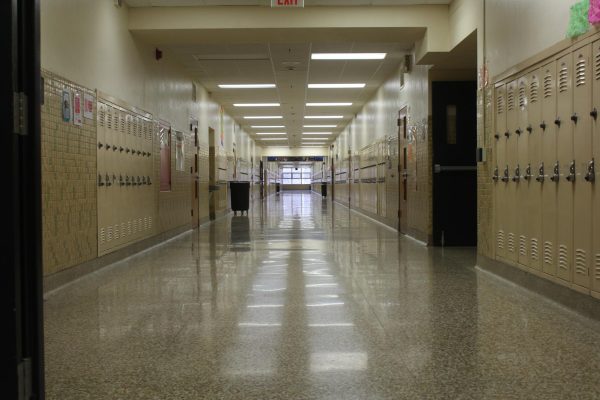Wi-Fi changes planned
Dissatisfaction prompts system adjustments
Director of Information Systems Tom Marble works to improve the Wi-Fi at the high school after several students expressed their dissatisfaction.
December 20, 2015
Senior Paul Friederichsen said he had the last straw with the school’s Wi-Fi network recently when a Schoology document he needed for class failed to load.
Friederichsen brings his laptop and smartphone to school on a daily basis, and said he stands among students and teachers who believe the current wireless internet system fails to meet certain academic necessities.
“I’m dissatisfied,” he said. “The speed limit should be removed or just increased — at least five megabits per second.”
According to Tom Marble, director of information services for St. Louis Park Public Schools, the district implemented new infrastructure in light of the 2013 renewal of the technology levy.
“Last year, we put in a whole new wireless system across the entire district, a unified wireless system,” he said. “Up to that point, we’d been buying wireless equipment in little chunks.”
The updated technology allows for the careful monitoring of network speed and usage, Marble said.
“It really allows us to almost drill right down to the classroom level,” Marble said.
Marble said the school may return to the previous system of device registration.
“We are looking at moving back to what we call a ‘registered network’ where you as a student would bring in a device — you connect to this particular wireless network that you see — and you log in,” Marble said.
Marble said returning to the “bring-your-own-device” (BYOD) system could quicken the network connection across the school.
“It would probably be more bandwidth available to you that way than there is with the wide-open guest network that we have it set up as right now,” Marble said.
Library media specialist Ellen George said she feels unhappy with the current wireless system and hopes to see improvement.
“It will be good if we go back to a system that works better for students,” George said. “The guest system just doesn’t seem to work for many people.”
Freshman Kunga Norzim, who regularly uses her smartphone on the guest network, said she does not consider switching back to the BYOD system necessary.
“I think that (the current system) works well,” Norzim said. “It works fast.”
Marble said federal laws require the school to filter certain websites, and certain sites simply have no place in an academic setting.
These restrictions will remain in place, regardless of the registration method.
“There are sites that are legitimate for educational use and there are sites that are not legitimate for educational use, so those sites get blocked,” Marble said.
George said she understands certain limits, and that the limited Wi-Fi availability should support academic endeavors.
“Some restrictions are fair,” George said. “I see a lot of people misusing their personal device. I think we’ve got to deal with personal responsibility.”
According to Marble, the high school should see the individual device registration system back in place as soon as the start of the second semester.
A meeting in the spring will focus on future technology plans in the district.



